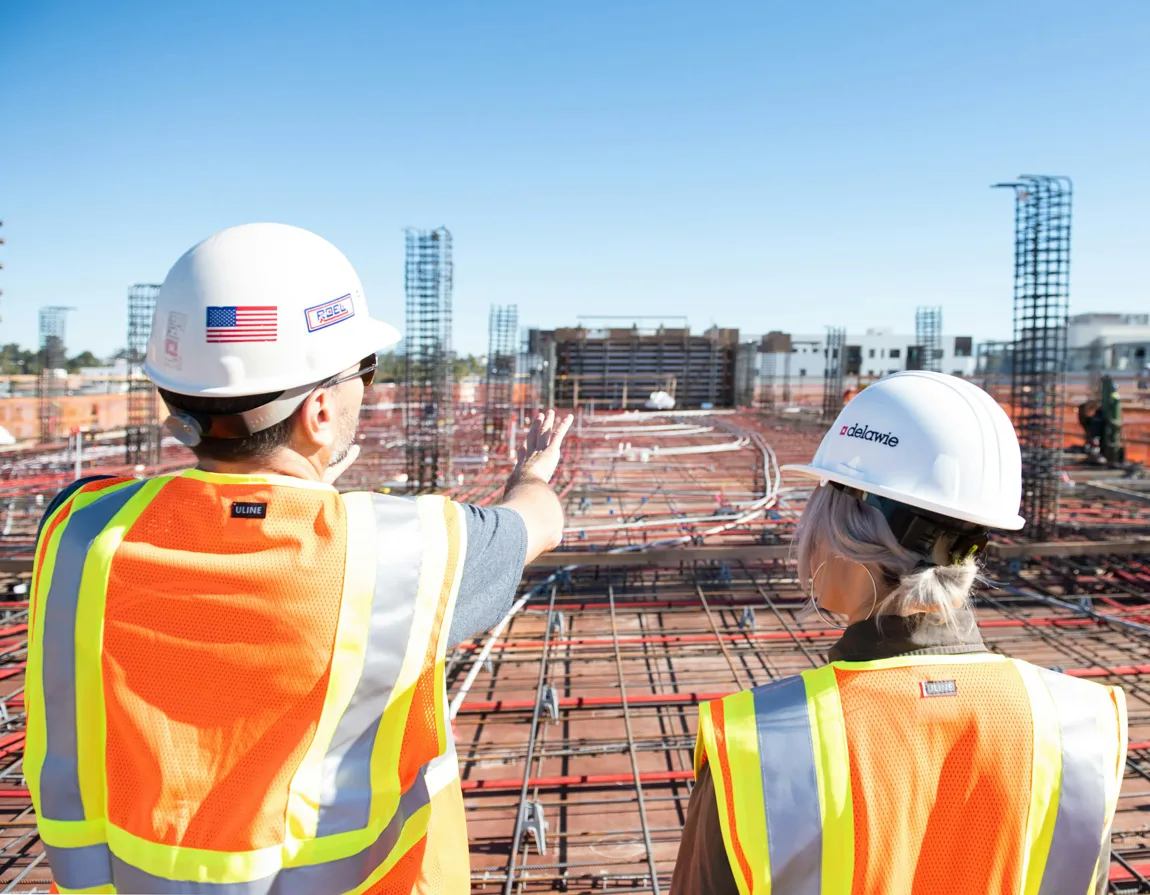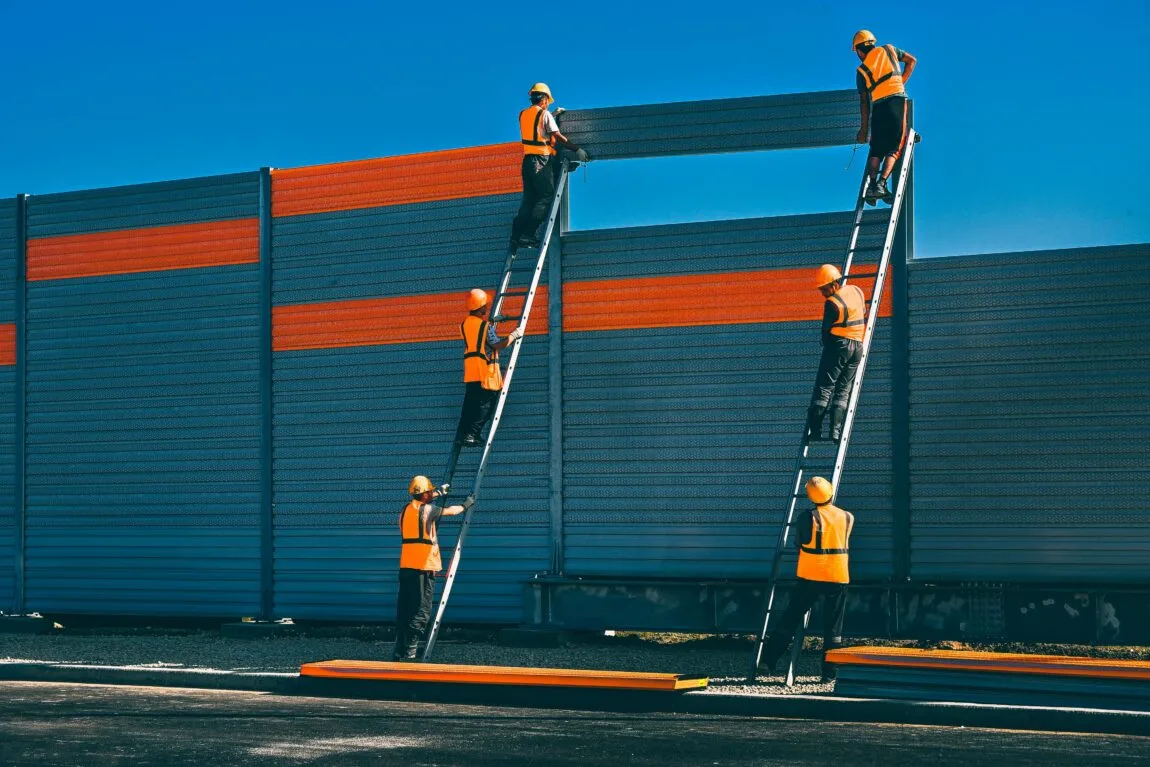The construction industry, just like any other industry, is constantly evolving. There are always new building materials, new safety regulations, and new contract laws emerging. In order to keep up, professionals must stay informed and compliant with industry standards—and that’s why continuing education in construction is so valuable.
Earning continuing education credits helps you meet legal requirements and possess expert skills. Different states and organizations have specific requirements for CPD construction, but the goal remains the same: keeping you up to date with industry advancements.
Let’s explore the basics of construction continuing education—why it’s required, its benefits, how to earn credits, and state-specific requirements.
What is construction continuing education?
Construction continuing education covers a wide range of topics, including workplace safety, project management, environmental regulations, and contract law. These courses help professionals maintain licenses, meet compliance standards, and improve overall job performance.
The specific education requirements, however, vary by role:
- Contractors: Focus on state-mandated safety training, building codes, and project costs
- Project managers: May need courses on scheduling, risk assessment, and leadership skills
- Engineers/architects: Coursework in structural integrity, material science, and sustainability
In the U.S., continuing education is often tied to state licensing boards, while globally, CPD construction (Continuing Professional Development) plays a big role in career advancement. Organizations in the U.K., Canada, and Australia, for example, require ongoing CPD credits to maintain professional accreditation.
Why is continuing education required for construction workers?
With state and federal agencies enforcing strict licensing and safety requirements, construction is a highly regulated industry. To maintain compliance and uphold industry standards, professionals must complete continuing education credits, which are often tied to license renewal and career advancement.
State-specific licensing and renewal requirements
Each state has its own set of regulations regarding construction continuing education, with many requiring licensed professionals to complete a certain number of hours in approved courses. For example:
- California | Contractors must take courses in energy efficiency, seismic safety, and construction law to maintain their licenses. California Contractors State License Board (CSLB).
- Florida | Requires 14 hours of continuing education every two years, covering safety, business management, and legal updates. Florida Department of Business and Professional Regulation.
- Texas | Electricians and HVAC contractors need approved training on technical skills and safety compliance for license renewal. Texas Department of Licensing and Regulation.
- New York | No statewide mandate, but local jurisdictions (cities and counties) like New York City require specific training for license renewal. New York City Department of Buildings.
- Illinois | General contractors must complete continuing education every three years to stay licensed. Illinois Department of Financial and Professional Regulation.
- Georgia | Licensed contractors need 8 hours of continuing education annually, including safety and business courses. Georgia State Licensing Board for Residential and General Contractors.
- North Carolina | Mandatory courses in construction law, safety, and project management are required for license renewal. North Carolina Licensing Board for General Contractors.
To find out what licenses you need, go to the licensing board website for your state. It is usually found under the department you need to be licensed in on your state government’s website. Most boards provide online access to details on license types, renewal requirements, and continuing education credits. Licensing boards also list phone numbers and email addresses, so you can directly inquire about specific qualifications.
Failing to meet these requirements can result in penalties, license suspension, or even revocation—making continuing education credits a fundamental aspect of professional longevity.
Safety, compliance, and emerging technology

Beyond licensing, construction continuing education is essential for keeping professionals informed about industry shifts. Training programs feature topics ranging anywhere from workplace safety to regulatory compliance. You will likely cover OSHA regulations, hazard prevention, and emergency preparedness, zoning laws, environmental regulations, labor policies, and more. In some cases, you may also learn about how AI tech helps in managing contracts and mitigating construction legal risks.
Think about AI contract management for a minute. Traditional contract reviews are unquestionably time-consuming and prone to human error. With modern construction contract review software, you can now automate contract analysis, reduce administrative burdens, and minimize legal exposure.
Benefits of construction continuing education
Continuing professional development (CPD) is about seriously advancing your career.
1. Compliance and licensing
Many states require contractors, engineers, and project managers to complete a set number of continuing education credits to maintain their licenses. These courses help you stay updated on evolving building codes, environmental regulations, and safety standards. Without compliance, licenses can be suspended.
2. Higher earning potential
For those looking to advance in the industry, CPD construction programs provide opportunities to specialize, gain certifications, and increase earning potential. Lots of organizations prefer to hire or promote individuals who have demonstrated a commitment to ongoing education.
- Certifications in project management or sustainable building practices can open doors.
- Contract negotiation, cost management, and legal compliance can lead to higher-paying positions.
- AI can make professionals more competitive in an industry that’s reliant on automation.
3. Risk reduction through legal contract education
One of the biggest challenges in construction we’ve seen some of our customers facing is avoiding disputes related to contracts, compliance, and project scope. So understanding how to prevent construction legal risks might help you prevent costly litigation, delays, and financial losses.
Let’s say you earn continuing education credits focused on contract management, you can then optimize your ability to draft, review, and negotiate agreements effectively. These days, smart construction companies and contractors incorporate AI construction contract review to enhance accuracy and speed in contract analysis. AI tools help detect risky clauses, improve contract clarity, and facilitate compliance.
How to earn construction continuing education credits
Earning continuing education credits as a construction professional is one of the best ways to maintain your license, stay competitive, and improve your skill set. Fortunately, there are multiple ways to complete these credits, offering flexibility based on schedule, learning preference, and career goals.
In-person training via workshops, state-mandated training, and conferences
Many states require construction professionals to attend in-person workshops or training sessions to fulfill continuing education credits. These sessions often focus on critical areas such as:
- Safety training (OSHA, fall protection, hazard communication)
- State-specific building codes and environmental regulations
- Risk management and dispute resolution strategies
Conferences also provide opportunities to learn from industry leaders, and network with peers.
Online courses: Flexible learning for busy professionals
With advancements in e-learning, countless professionals in the U.S. now prefer to earn continuing education credits through online platforms. Organizations like the National Association of State Contractors Licensing Agencies (NASCLA) and various state contractor boards offer accredited courses that allow learners to complete training at their own pace. Online courses often cover topics like:
- Sustainable construction practices
- New advancements in construction materials and technology
- Legal updates related to contract negotiations and compliance
On-the-job training: Practical learning in compliance, safety, and PM
Some states allow professionals to earn continuing education credits through supervised on-the-job training. This method is useful for learning new safety protocols on active job sites, understanding compliance measures in the real world, and gaining hands-on experience with contract negotiations.
Earning CPD construction credits via professional associations
Numerous professional organizations provide structured CPD construction programs that count toward license renewal and career development. Associations such as the Associated General Contractors of America (AGC) and the American Institute of Constructors (AIC) offer training programs, certifications, and industry-recognized qualifications. When you participate in CPD programs, you get access to:
- Industry-leading best practices
- Exclusive training materials and workshops
- Networking opportunities with experienced construction professionals
Investing in your future by continuing your education in construction
The construction industry never stands still—new technologies, safety protocols, and legal regulations shape the way professionals work. To stay competitive and compliant, construction continuing education makes sure that contractors, project managers, and engineers like you:
- meet state licensing requirements
- reduce legal risks, and
- position themselves for career advancement.
Earning continuing education credits is an investment in your professional future. Through a mixture of in-person training, online courses, or CPD programs, these credits provide the knowledge and skills needed to navigate complex projects, prevent costly disputes, and implement the latest industry innovations.
Additionally, in an increasingly competitive market, professionals who prioritize ongoing education stand out will stand out. When you pursue CPD, you gain better opportunities, higher earning potential, and greater job security.
For those looking to take their expertise further, CPD construction programs offer a structured pathway to career growth. Construction continuing education is about staying ahead, adapting to industry changes, and setting yourself up for long-term success. The more you invest in your education, the more opportunities open up for you in an industry that values expertise, innovation, and proactive learning.







By entering your email, you agree to our Terms & Conditions and Privacy Policy.